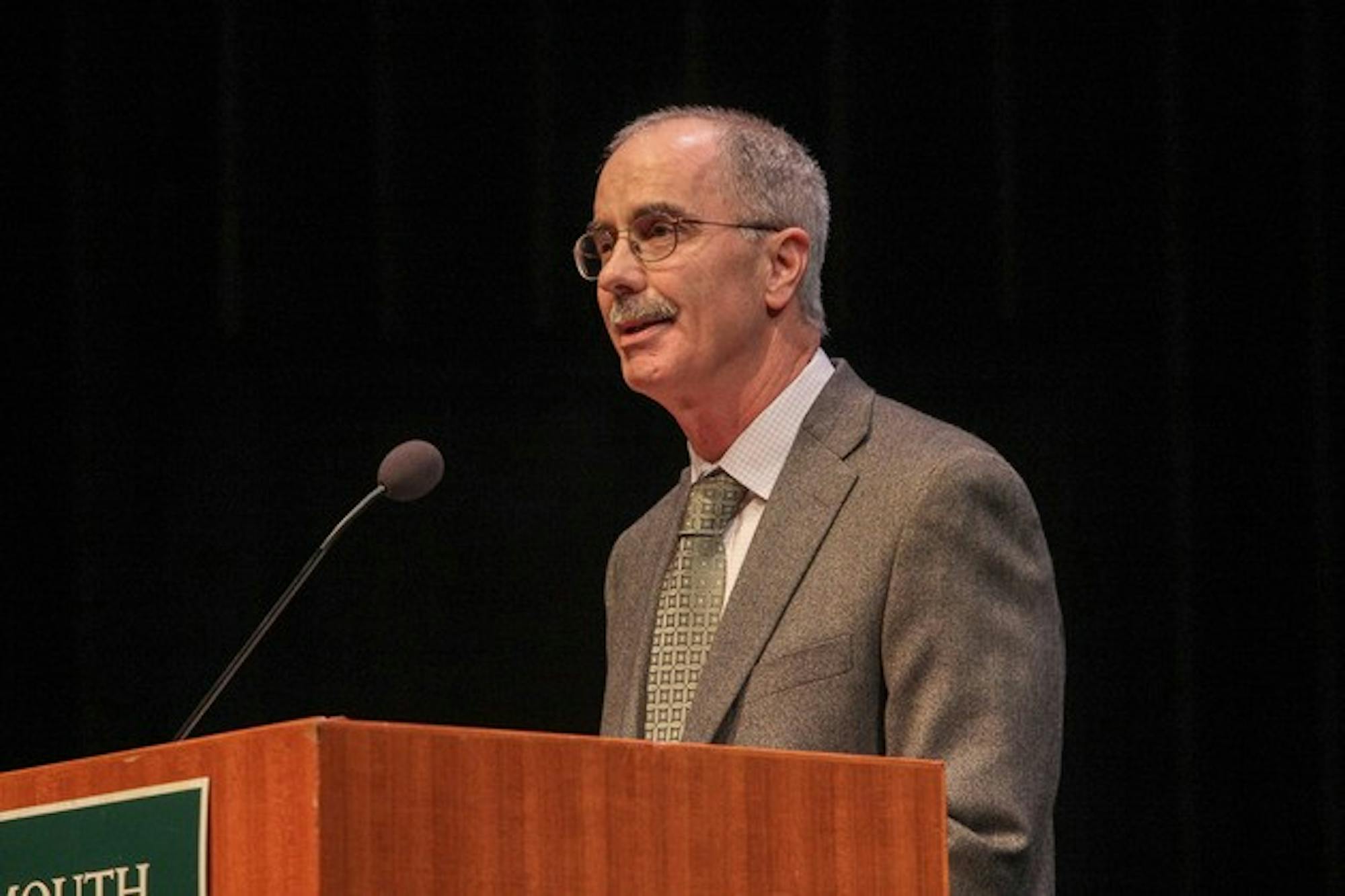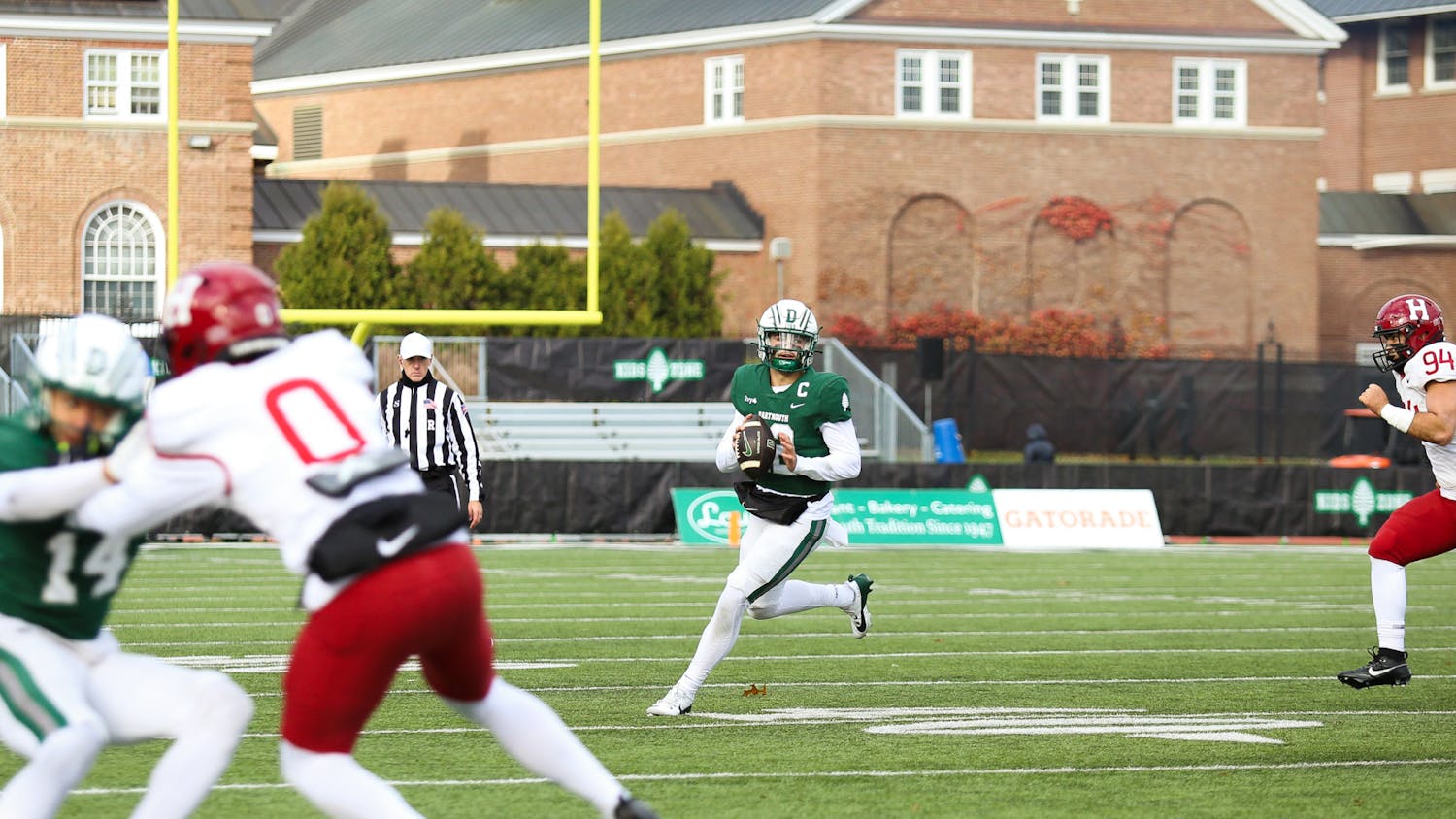Predicting he will grow attached to the Class of 2017, College President Philip Hanlon imparted four recommendations to incoming students. A member of the Class of 1977, Dartmouth's 18th president took office in early June.
During their four years at the College, students should think about how to prepare themselves for the world beyond Hanover, get to know faculty members, engage in learning outside the classroom and stay true to their values, Hanlon said.
"The Dartmouth undergraduate experience focuses on preparing citizen leaders," he said. "Not just people who will be engaged citizens, but also people who will lead public discourse and debate and set the way forward."
He urged students to pursue their passions, whether these lie in research, the Dartmouth Outing Club or community service.
Members of the Class of 2017 will be the first to fully get to know him.
"This is the first class where I'll be able to, as much as possible, influence the conditions of their education," Hanlon said.
Members of the Class of 2014, 2015 and 2016 experienced at least two presidents during their time at the College.
Former President Jim Yong Kim took office in July 2009, just before the Class of 2013 matriculated, and left the College last summer. Interim President Carol Folt, who succeeded Kim, departed for the University of North Carolina at Chapel Hill in June.
"I hope we have stability from this point on," Hanlon said, chuckling. "Consistency of leadership allows the institution to transform itself in positive, interesting ways."
He cited the College's ability to lead changes in higher education, like the use of technology in learning and affordability of college tuition, as an advantage that would benefit from long-term leadership.
This summer, Hanlon has focused on listening to various campus constituencies, hosting dinners for students at his home, holding office hours and visiting the Native American house, the Roth Center for Jewish Life, affinity houses and several Greek organizations.
Hanlon said these events helped him to better understand how much students care for the College and the areas they feel can be improved. He declined to comment on the specific topics of his conversations, saying he did not want to influence future discussions with students.
He said he expects Dartmouth to strengthen support programs for both entrepreneurship and study abroad by the time the Class of 2017 graduates. For instance, the College could link opportunities abroad with service learning, he said.
He also emphasized the greater role technology will play in learning, saying it will make face-to-face teaching more effective.
Hanlon was the provost and the executive vice president for academic affairs at the University of Michigan before assuming the presidency of the College. He mitigated a $47.5 million loss in the state's appropriation to Michigan in 2011 by making departmental cuts and tuition increases.
A mathematics major at Dartmouth, Hanlon taught introductory calculus at Michigan and will teach Math 11 at the College in the fall.




